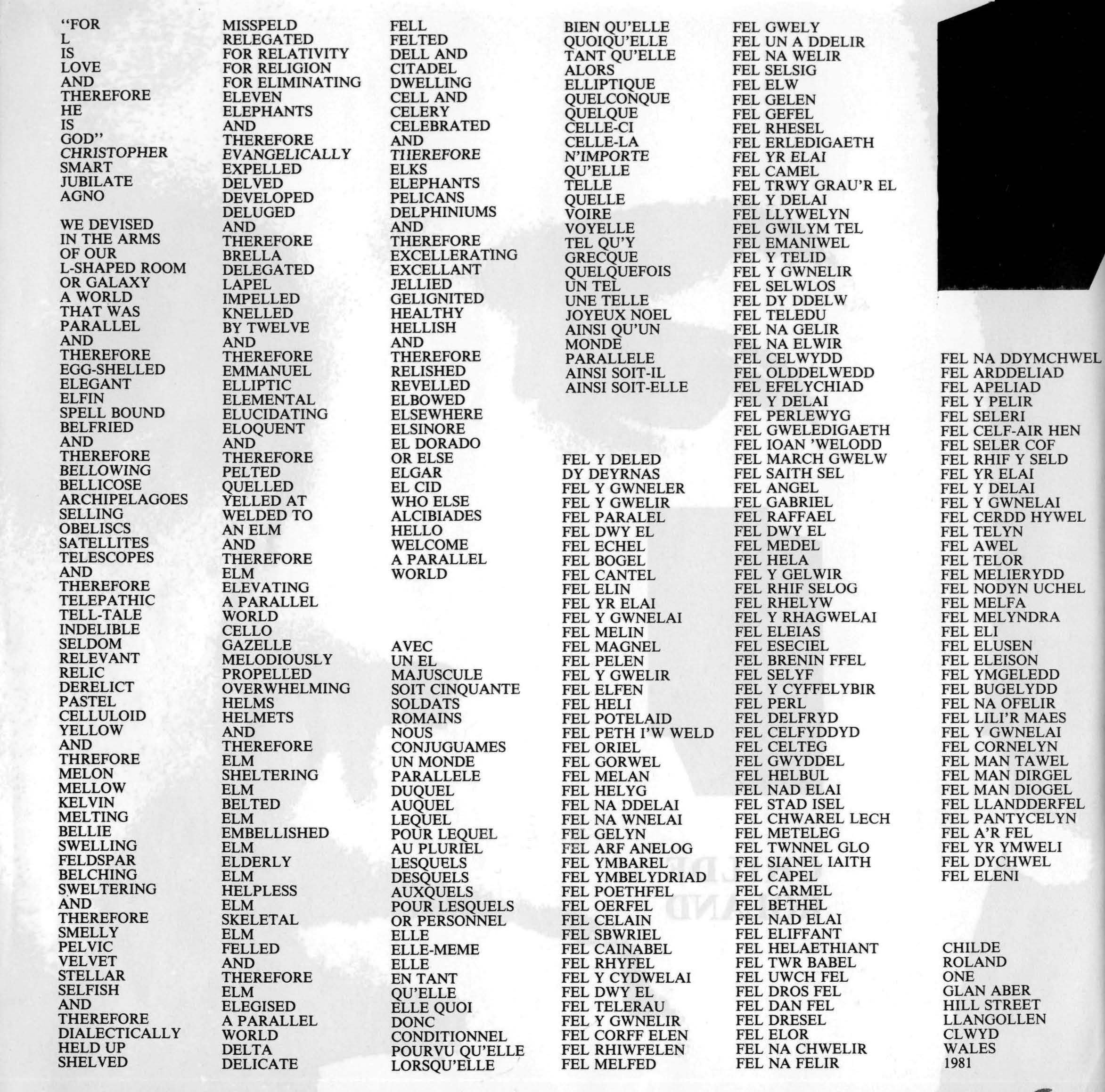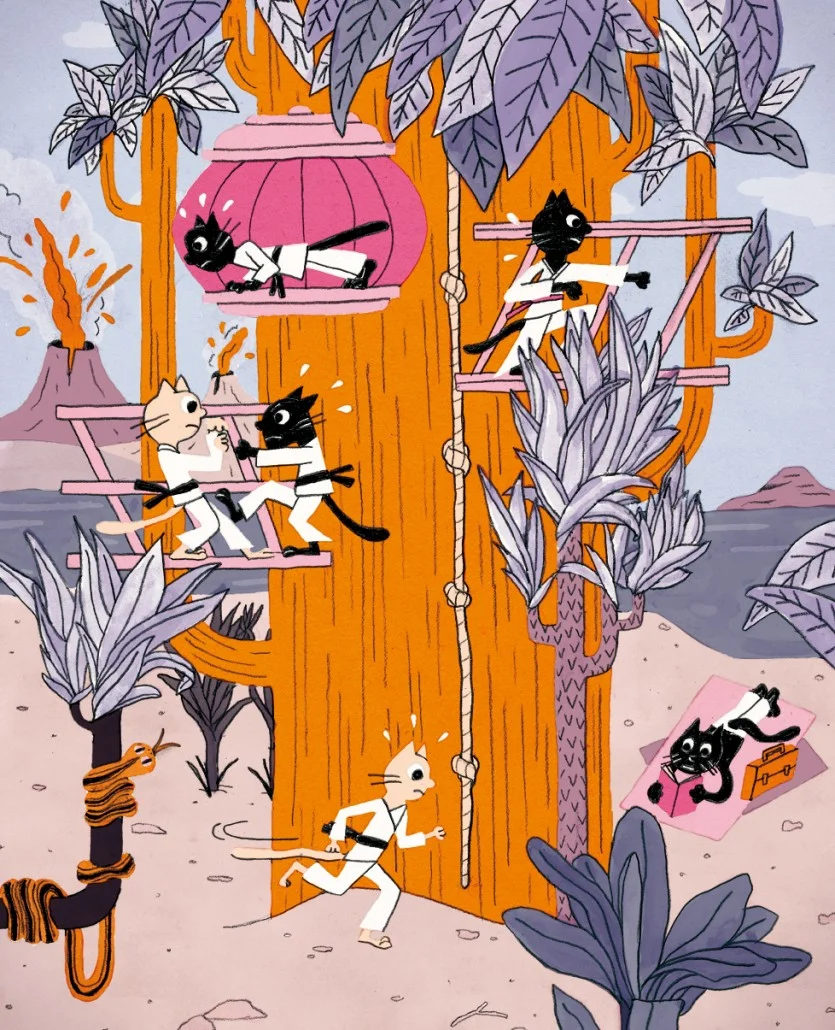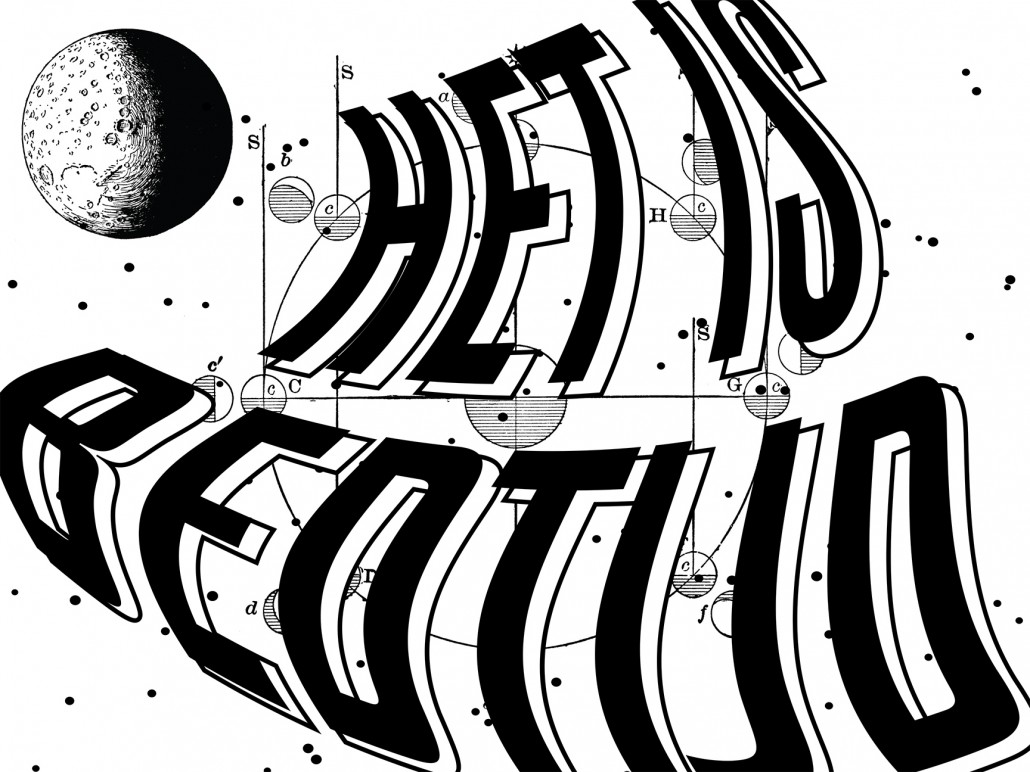a series of fragments & notes about Chance, Fate, Context & Intention by Dara Wier
~~~~~~~~~~~~~
~~~~~~~~~~~~~~~~~~~~~~~~~
wordless, speechless, without words, no words for it, silent, maintaining radio silence, reduced to silence, noiseless, still, quietude, in secret, undercover, camouflaged
~~~~~~~~~~~~
There is a big difference between having nothing worth saying to say, and not knowing what to say, not saying something, and saying something literally metaphorically.
And all of those differences among all kinds of saying, such as saying nothing and saying too much, saying a little or saying a lot, and being tantalizing and boring someone to death.
And then there is the delight that can come with saying the obvious, what’s obvious, repeatedly.
The phrase hysterical discovery of the obvious does not mean the same thing in different locations.
Repeatedly I remember someone saying to me, if it had been a snake, and so on.
~~~~~~~~~~~~~~~~~~~~~~~~~~~~~~~~~
INTERLUDE REGARDING EPIGRAPHING
almost no writer I’ve encountered shies away from “meaning” in their choice of epigraphs, for now I’ll stick to books, though poems make use of “meaningful” epigraphs all the time, too----the epigraph page alone, standing alone, usually set off from the book’s beginning, as a kind of gesture of atmospheric definition, or an epigraph introduces almost a host whose presence now accompanies the book into your brain (an epigraph from Wallace Stevens, an epigraph from Simone Weil, from Wittgenstein, from James Baldwin, from Sappho, from ultra classic religious texts we all know, from a song, from a name recognized to be associated with something that will be taken to be relevant to opening
the book to which the epigraph is attached
~~~~~~~~~~~~~~~~~~~~~~~~~~~~~~~~~~~
When is someone’s secret (secret handshake, secret code, secret hiding place………)
(in some sectors, say, the secret affiliations and co-operations,
language uses to distort or extort or
otherwise unstraightforwardly fool and manipulate)
the secret place (mostly in plain sight) (to protect someone or something) (to hide someone’s ill-gained booty)
When is it hurtful (and sometimes dangerous) for someone to keep something from you.
When it would, if you knew what it was, figure in to important decisions, significant feelings, steps you would be taking or not taking.
I don’t know if I should be telling you this but.
I should have told you.
I should have warned you.
I don’t know if I should be keeping this from you.
~~~~~~~~~~~~~~~~~~~~~~~~~~~~~~
when lack of self-consciousness keeps a secret about yourself from yourself, for your own sake
when self-consciousness, which we must have, can’t help but have,
must be able to pretend it isn’t a factor,
it is imitating, you find yourself imitating yourself, your self-consciousness
becomes most of what you are
do you lose the factor of being the agent of action or thought
because what takes over during bouts of severe self-consciousness
is the shifting of yourself from agent to audience,
while you are self-consciously choosing to act or think
you are losing the one and only original impetus
as it transforms itself from subjective actor to action
& thought to observing receptor
The terrible frozen panic of:
I see myself thinking in such a way as to be required to decide how I feel about it.
~~~~~~~~~~~~~~~~~~~~~~~~~~~~~~~~~~~~~~~~~
We’re always being told by so many means the significance of knowing ourselves. To be seeing ourselves for what we really are.
As if all that what takes is a quick look in a mirror and some minor readjustments taking into account which side of your face is which and what illusions of depth involve
and relative values of exterior surface to interior dimensions, and what else happens to be within the frame of the mirror, and, by the way, it’s said it’s bad luck for two of us to look into the same mirror at once, and everyone’s so used to idly reading on side rearview mirrors the arresting warning that objects in mirror are closer than they seem to be
~~~~~~~~~~~~~~~~~~~
The allure we’ve felt since film’s beginnings, to see ourselves and to understand ourselves as we would be were we in a film, to observe ourselves this way, to add to self-consciousness, film-consciousness, another layer of perceived understanding and existence.
The thoughtless casual picturing of one’s life on film.
How common is this picturing? What does it give us? What does it take away?
Picturing yourself. You see yourself as what you are, always.
That’s always been so. It has to be done. We have to do it.
Our mirror neurons or whatever those bits of brain are that magnetically draw us to imitate something….if not one another……..some thing………
why did the egyptian princess wear the headdress she wore?
then why does monkey see/monkey do feel elementally sorrowful
why do galloping horses share so many principles of locomotion? does the foal copy its mother? what would it do without her? it would be fine with its built-in locomotion attributes
~~~~~~~~~~~~~~~~~
Odeon Redon: …..once he has established his own idiom…….
once he’s taken from nature the necessary
means of expression, is free, free legitimately free, to borrow
his subjects from history, from the poets, from his own imagination,
from the thousand sources of his fantasy
[once he has established his own idiom]
My whole originality consists in having made
improbable beings
live humanly
according to the laws of the probable
by as far as possible
putting the logic of the visible
at the service of the invisible.
The designation of my drawings by a title is often, so to speak, superfluous. A title is justified only when it is vague and even aims confusedly at the
equivocal. My drawings inspire, and are not to be defined. They determine nothing. They place us, as does music, in the ambiguous realm of the
undetermined.
Odeon Redon
~~~~~~~~~~~~~~~~~~~~
…..the heart has its reasons of which reason knows nothing……
Pascal
~~~~~~~~~~~~~~~~~~~~~~~~~~~~~~~~~~~~~~~~~~~
A curious HUMAN INCLINATION TO PROGRESS THROUGH ERROR
AND TO DECLARE MOST SIGNIFICANT THAT WHICH IS MOST DETRIMENTAL
DAMAGING, DESTRUCTIVE, DEMEANING
THE HUMAN INCLINATION TO DEFINE ERROR (it’s called fault-finding) (if only it were as funny as its name is)
THE HUMAN INCLINATION TO FIND WHAT IS FALSE (A PACK OF LIES) MOST SIGNIFICANT OF ALL
THE HUMAN INCLINATION TO FIND FAULT FINDING THE MOST
ALLURING
THE HUMAN INCLINATION TO LEAN TOWARDS FAILURE, TO LEAN
TOWARDS FALLING
~~~~~~~~~~~~~
people who don't want to be understood don't read poetry
do you understand me?
~~~~~~~~~~~~~~~~~~~~~~~~~~~
What do you think that means?”— countered with a “Did you see that?”
~~~~~~~~~~~~~~~~~~























